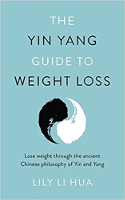
Image by lisa runnels
It's Monday morning, and your alarm clock goes off. You feel more tired than usual. As you get up, your head feels tight, your muscles achy, and your throat is sore. You stumble to the bathroom, pull out the thermometer and take your temperature... 101 degrees! You have the flu. So you immediately look at yourself in the mirror and say to yourself: "You idiot, look what you've done to yourself. You have a fever, how stupid could you be? You are only doing this for attention, a way to get out of work. You're pathetic!" Right?
Of course not. You take care of yourself. You rest. You may see a doctor. You drink a lot of fluid. You nurture yourself back to health. If you're holistic, you recognize that fever is a natural defense mechanism to fight off the virus or bacteria that is attacking your body. You may even thank your body for doing such a good job.
Take a look at another scenario. Your best friend has pneumonia. She has been hospitalized and you take off work early to visit her. She is on the road to recovery, and will probably be home in a day or so. While you are there, she has a coughing spell. It takes a few minutes before she can catch her breath, the nurse may even have to come in and use a ventilator. After you leave, you have dinner with another friend and your best friend comes up in conversations, so you say: "I can't believe what she did while I was there. She went into this coughing spell. It was so disgusting. She is really a pig. Why can't she control herself?" Right?
Of course not! You recognize that coughing is a symptom of pneumonia and that your friend cannot help it. You probably offered her a glass of water or maybe you were the one to call the nurse, and you expressed your sincere concern for her with your other friend at dinner.
Symptoms vs. Cause
If we are so gracious with flu symptoms in ourselves, or pneumonia symptoms in our friends, why then are we so cruel with symptoms of another disorder that affects nearly 70% of the American population? Obesity. Do we really think that someone would choose to be overweight? Do we really think that children say, "When I grow up I want to be fat?"
Almost every `solution' to the problem only deals with the symptoms. We are conditioned in this society to only think of the tangible, physical aspects of the world around us, and so the main emphasis regarding obesity for many years has been food and diet. And yet eating is not the issue. Then, modern society changed its emphasis to exercise. Yet again, this is dealing with the symptom. So then, what is the cause of obesity?
What is the cause of cancer? Well, you say, there are many things that can cause cancer. True, but not every person exposed to those things gets it. You can also say there are many different kinds of cancer. True, and each kind is not necessarily caused by the same thing. The problem is we want straight-forward, black and white concrete answers to all life's problems. Uncertainties and gray areas disturb us.
As an Acupuncture Physician, I often have people ask if I can help them lose weight. As a person who has struggled with weight myself, I have a few thoughts to share, and some of the discoveries are very recent for me.
Getting To Know You
First of all, no one can help someone else lose weight. Oh, I can recommend a diet and exercise program, combined with acupuncture to suppress the appetite, and if it works, which it may, the symptom has only been palliated. It is like taking an aspirin for your fever and saying it cured your flu. You know as well as I do, when the aspirin wears off, the fever will likely come back. That's not to say that taking an aspirin may not be appropriate if your fever is dangerously high, while you take other appropriate measures to get well.
So what are appropriate measures for obesity? I would say, at the top of the list is self-discovery. Just as you wouldn't heap guilt on yourself for having a fever with the flu, begin to look at your weight as a symptom of something bigger. Begin to know yourself.
When did the `illness' start?
What was happening in your life when it started?
Discover the patterns. Were there times when you didn't have the symptoms? What was happening then?
As you answer these questions, you may be able to see that just as a fever is a defense mechanism to fight an attack, perhaps your weight was a method of protection, and that your body is really taking very good care of you. Perhaps it is a signal that your life is out of control, and again your body is taking good care of you by letting you know. Perhaps you are carrying a heavy load, and in a very real way your body is reflecting this to alert you.
Thanks and appreciation may be in order. After all, your body has been taking care of you while you've been insulting and slandering it.
Treating Yourself As A Friend
As you start to treat yourself as a friend, remember that you certainly wouldn't berate the friend hospitalized for pneumonia. This is more than simple behavior modification, which is again another method of treating the symptom. As there are no two blades of grass the same, your illness is just as unique as you are.
Addressing symptoms does not address your uniqueness. It may be appropriate to address your symptoms during or after you work on your self-discovery, but no diet or exercise regimen is right for every person. Everyone has different needs.
If you are reading this and you have never had a weight issue, perhaps you would consider looking at your friends who do with the same compassion that you look at someone with an illness. Offer your support in their path to the solutions, not just symptom chasing.
Related book:
The Yin Yang Guide to Weight Loss
by Lucy Li Hua
 China is ranked as one of the world's slimmest nations and the secret to its people's healthier and happier lifestyle has been ingrained in its culture for thousands of years: they believe that life should be aligned with nature, and follow the basis of the yin and yang theory of balance (the 2000-year-old philosophy from the philosopher Lao Tzu that states a part can only be understood through its relationship to the whole).
China is ranked as one of the world's slimmest nations and the secret to its people's healthier and happier lifestyle has been ingrained in its culture for thousands of years: they believe that life should be aligned with nature, and follow the basis of the yin and yang theory of balance (the 2000-year-old philosophy from the philosopher Lao Tzu that states a part can only be understood through its relationship to the whole).
In THE YIN YANG GUIDE TO WEIGHT LOSS, Chinese doctor and nutritionist Lily Lihua lets you into these ancient slimming and wellness secrets, as well as providing easy recipes and exercises that you can easily incorporate into your daily life. Learn how life should really be lived, to help you lose weight, feel energised, and be in control of your health and well-being.
Info/Order this book. Also available as a Kindle edition.
About The Author
Deanna Waggoner is a licensed Acupuncture Physician. Deanna received a B.A. from the College of Traditional Acupuncture (UK), and is a graduate of the Worsley Institute of Classical Acupuncture in Florida.
























